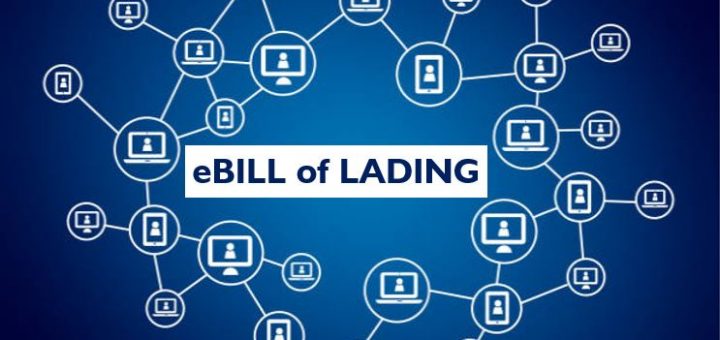As the world continues to go deeper into the world of digitization, the shipping industry is not left behind. From e-Commerce, e-Form M to e-Bill of Lading, the conversation for increased digitization of the shipping processes and documents is gaining unprecedented momentum. Tech-minded stakeholders are contemplating the possibility of an e-Bill of Lading and the idea has begun to resonate with large-scale acceptance even among industry conservatives. It is important to evaluate the current paper-based Bill of Lading and explore the benefits of an e-Bill of Lading.
A Bill of Lading (BL or BOL) is traditionally paper-based evidence of a shipping contract issued by an ocean carrier to a shipper with detail of the goods being carried to the port of destination. It is moved from shippers to consignees, causing serious waste of time and unnecessary expenses. Originally, the term “bill”, is defined as a printed or written statement of the cost for the goods or services delivered or to be delivered. In view of the current digitization drive, electronic Bill of Lading becomes is beginning to gain relevance and its key advantages can be considered as shown below:
Efficiency: With an electronic Bill of Lading, the required information is registered online and sent to consignees without delays or interference. It enables the efficient flow of information pertaining to the carrier, contact detail of consignee, notify party, detailed list of goods being transported, number of packages and kind of packaging, weight and/or volume of the cargo, each package’s freight class, terms of payment (which is optional) and special handling instructions. This promotes transparency because it provides simultaneous access to information by all the parties involved.
Lower Chances of Error: Since Bill of Lading is an important ocean shipping document, processing it electronically helps to identify and eliminate potential errors during online registration due to the availability of forms that can be quickly corrected with standard autocomplete functions.
Improved Security: Since electronic Bill of Lading helps to eliminate the physical movement of paper-based Bill of Lading, potential risk of fraud while shipping. It encourages safety.
Cost Reduction: The adoption of e-Bill of Lading can significantly reduce the administrative cost associated with the paper-based Bill of Laden for global players, which can run into millions of dollars annually.
The conversation on exploring an efficient option as the e-Bill of Lading has not only gained traction but has become an increasingly attractive option, as against a costlier paper-based option. May shipping companies have adopted the idea and this provides a unique opportunity for global forwarders to take advantage of this innovative idea for the foregoing reasons.


